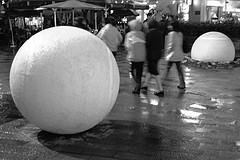British Olympic rowing great Sir Matthew Pinsent recently visited Beijing’s Shichahai Sports School (a special school that trains gymnasts). In a subsequent BBC report, he alledged abuse of the students and a harsh Soviet-era ‘win-at-all-costs’ mentality at the school.
“It was a pretty disturbing experience. I know it is gymnastics and that sport has to start its athletes young but I have to say I was really shocked by some of what was going on. I was wondering whether the western approach compared to the eastern approach is a bit different but I do think those kids are being abused.”
“When I talked to the vice principals they said hitting was against the law, but then there were parents who want you to do it. They said this is what they needed to do to make them hard.”
One boy at the school admitted that beatings were sometimes administered following serious mistakes but went on to say that it only meant that the coaches cared about them. Perhaps shockingly, China has more than 4,000 similar sporting schools training potential Olympic medal winners.
The school’s director, Mr. Liu Hongbin, responded by declaring the need for “discipline and order” among his young charges and that sometimes beating children was necessary to improve performance. Another offcial was quoted as saying: “This is the breeding ground of our Olympic heroes. They make us proud of being Chinese.”
The I.O.C. expressed concern about the reports but refused to condemn China, saying that people should not jump to conclusions. The British Olympic Association also distanced itself and refused to discuss Chinese methods. Only the International Gymnastics Federation said that they would talk to the Chinese about the allegations.
If widespread, then certainly China’s ultra-strict methods are not for the faint-hearted. However, where does one draw the line? At what point does one accept cultural differences and/or declare outrage at the beatings of children and a Soviet-type quest for national glory? Certainly, schools like the one Sir Matthew describes are a far cry from the famed and much-envied Australian sporting academies of excellence which have made the country a dominant force in many sports. Is it naive for Sir Matthew to question his earlier belief that giving the Games to China would help open up the country to the rest of the world and have a positive overall effect?
UPDATE: Britain’s culture secretary Tessa Jowell has advised a full investigation into the allegations: “”We simply can not have young people in a sense being sacrificed in the interests of medal glory.”

Comments